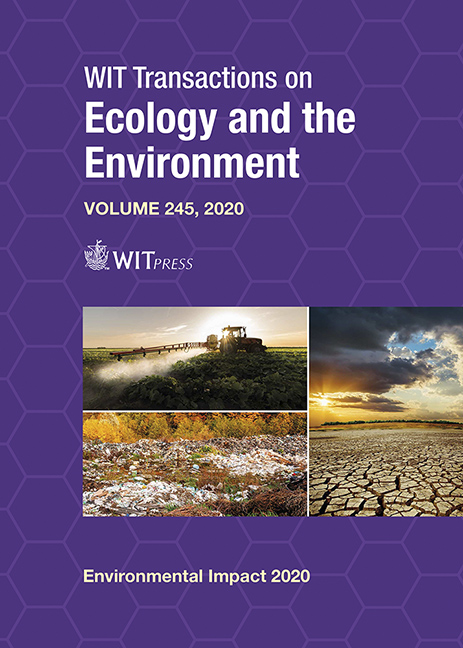COUNTING GAINS TO BEYOND ZERO-IMPACT FUTURES
Price
Free (open access)
Transaction
Volume
245
Pages
12
Page Range
97 - 108
Published
2020
Paper DOI
10.2495/EID200101
Copyright
WIT Press
Author(s)
DELWYN G. JONES, SHLOKA ASHAR, MATHILDE A. M. VLIEG, DAVID M. BAGGS
Abstract
The paper provides learning about past failures in the uptake of sustainability imperatives from qualitative discourse analysis of selected public communication, from reviewing a novel framework and from case studies in one scientific field. Resultant concepts, strategies and solutions are offered with potential to quell emerging threats and facilitate ecological remediation. Life cycle assessments (LCA) of certified ecolabelled and business as usual production systems with comparable spatiotemporal resolution and uncertainty were reviewed. Life cycle impact assessment (LCIA) frameworks cover damages to supply, climate, habitat and human health loss. With a negative range stopping at zero, LCIA excludes positive gains in supply, climate, human and habitat security. Results of risk and benefit analysis considering strength, weakness, opportunity and threat for sustainability reporting exposed gaps creating chasms in communications. In response Evah Associates compiled the life cycle benefit assessment LCBA2020 framework for positive development. LCBA methods were developed to quantify gains in regeneration and reparation of supply, climate, habitat and wellness within planetary boundaries safe operating space. Methods were tested to supplement third party verified LCA of real-world lumber, paper, personal care and recycling product for certified ecolabels as well as whole buildings as-built and as-designed. Benefit and damage metrics are compared for supply, climate, human and habitat outcomes. Results are also shown as carbon drawdown ratings and circularity scores useful for circular economy and United Nations sustainable development goals. The work concludes LCA is one of many impactful methods counting negativity that fails to engage people or quantify sustainability. Recommendations include that positive climate and habitat security narratives can be made compelling. Proof of competitive advantage requires quantification of benefits minus burdens. Justification of investment demands reporting of gain versus loss inside planetary boundaries. Finally, it is an imperative to engage people in counting benefits and gains.
Keywords
sustainability, metrics, benefits, positive, damage, climate brake, carbon bank, security





